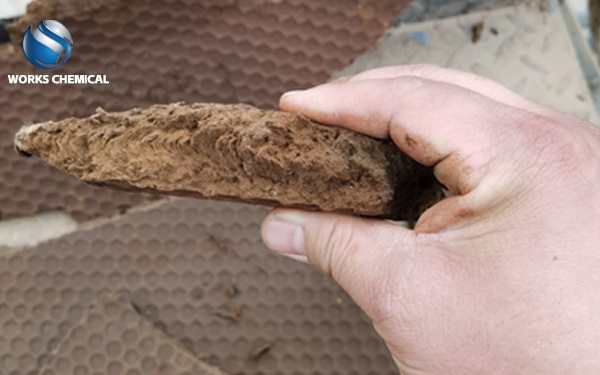
In the process of sewage treatment, the excessively high moisture content of sludge has always been a difficult problem plaguing the industry. Sludge with a high moisture content not only incurs high transportation costs and is difficult to dispose of, but also may pose a risk of secondary pollution. Among the numerous solutions for reducing the moisture content of sludge, sludge enhancers, with their outstanding performance, have become the first choice for an increasing number of enterprises and institutions.

The traditional methods of sludge dewatering have many limitations. For instance, conventional dehydrating agents such as polyacrylamide and polyaluminium chloride can reduce the moisture content to a certain extent, but the effect is limited. They often can only lower the moisture content to around 80%, and the treated sludge remains in a pasty state, making subsequent disposal still difficult. Meanwhile, some traditional chemicals also need to be used in combination with lime, which not only increases the amount of sludge but also causes corrosion to the treatment equipment and raises the maintenance cost.
In contrast, sludge enhancers have demonstrated significant advantages in reducing the moisture content of sludge. Its unique formula composition, which includes inorganic compounds, sludge surface structure modifiers, cell wall breakers and other components, can function from multiple perspectives. Cationic polymers can neutralize the negative charges of sludge particles and disrupt their stable dispersed state. The network structure formed by polymers can aggregate sludge particles into large flocs through the bridging effect, facilitating water separation. Cell wall disruptors can break the structure of sludge cells and release the water that is difficult to remove from the cells.
The actual application data can better reflect the outstanding effect of the sludge enhancer. It can significantly reduce the moisture content of sludge from over 90% to 40%-60%, and in some scenarios, it can even be as low as 35%-55%. After a municipal sewage treatment plant used sludge enhancers, the moisture content of the sludge was successfully reduced from 92% to about 50% after being treated by a plate and frame filter press. The volume of the sludge was significantly reduced, and the transportation and disposal costs were notably lowered.
Not only that, sludge enhancers can also enhance the operational efficiency of equipment. It can increase the sludge pressing efficiency of equipment such as plate and frame filter presses by 100% to 500%, shorten the sludge pressing cycle, and enable the equipment to process more sludge within the same period of time. An industrial sewage treatment facility with a daily sludge processing capacity of 500 tons has reduced the cost of chemicals by approximately 20% after using sludge enhancers. At the same time, due to the shortened operating time of the equipment, energy consumption has also decreased accordingly, effectively controlling the overall cost.
In addition, the sludge enhancer is friendly to equipment, free of chloride ions, and does not require the addition of lime, reducing equipment corrosion and filter cloth clogging problems, and lowering the frequency and cost of equipment maintenance. Moreover, the properties and organic matter content of the treated sludge remain basically unchanged, and there are no significant changes in the pH value and salt content of the filtrate. This will not have a negative impact on subsequent disposal methods such as incineration, brick-making, and composting, creating favorable conditions for the resource utilization of sludge.
Whether it is municipal sewage treatment plants or sewage treatment facilities in industrial fields such as printing and dyeing, papermaking, electroplating, chemical engineering, and leather, sludge enhancers can play a good role. Especially in scenarios with high requirements for water quality adaptability and strong acid and alkali tolerance, as well as in facilities using plate and frame dewatering equipment, its advantages are even more prominent.
In conclusion, under the demand for reducing the moisture content of sludge, sludge enhancers, with their highly efficient dewatering effect, cost advantage, protective function for equipment, and wide applicability, are undoubtedly the best choice. Choosing sludge enhancers can effectively solve the problem of sludge treatment and provide strong support for the green and efficient development of the sewage treatment industry.